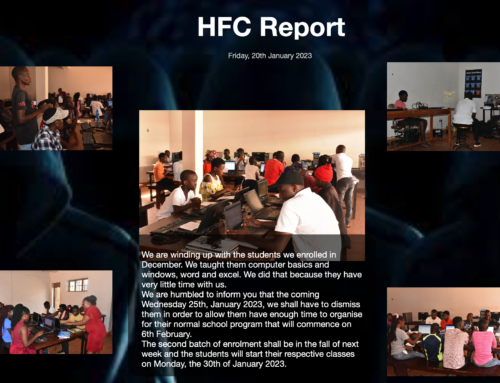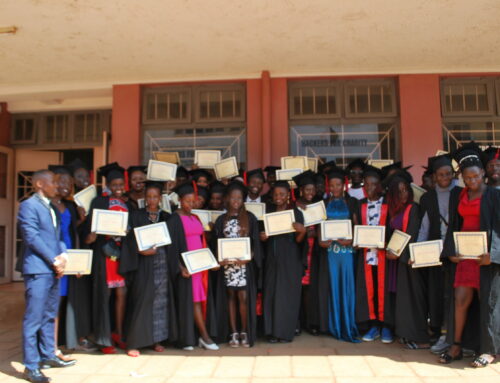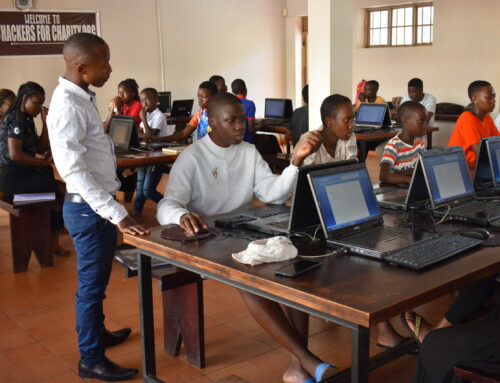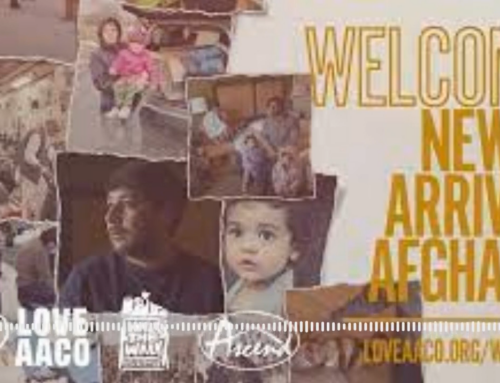I spent some time getting caught up from being away. I worked on three iPhones, one upgrade and two unlocks. Both unlocks failed because they were locked to AT&T but they’re out of contract (caught in limbo) so I’ll have to go the route of a database update to recognize the IMEI’s. The upgrade was a failure because it was a jailbroken phone with a software unlock (ultrasn0w) and an upgrade would have blown the unlock. So yeah, that was fruitful. I also worked on a hard drive recovery for Amani. The drive has a head crash, so a software recovery is out of the question. I’m icing the drive now to see if I can get any action out of it. I really need someone Stateside that can do gnarly hardware hard drive recoveries for us. Most organizations can’t afford recovery services, so ideally we’d like to find someone that’s willing to volunteer their services. Contact us if you’re interested in helping out.
I spent a solid three hours with the police today. They came to the house, fingerprinted our staff and looked at the “crime scene”. They agreed that it was an inside job. the thief knew the location of the safe, left behind “gadgets” (electronics) that could have been easily pocketed and sold, and instead of taking whole safe and working on it later, they decided to pry it open, take some of the cash and put it back where it was. Also, our guards do bag checks, so an insider would have been sure to pass the test when they were leaving. A thousand bucks is easier to hide than a safe and a bunch of electronics. We’re praying that we can identify the thief, especially since we don’t want innocent people accused wrongly.
I also spent some time with the leather craftsmen in our shop. We talked about the theft of material, and I was told that the worker wanted to show off what he could do to his friends in Kampala who insisted that “there were no good leather craftsmen in Jinja”. So he decided to make some bracelets to show his skills. This was stupid because it violated our trust and also because the bracelets were not a good reflection of his (pretty amazing) skills. As a result, we’re pushing ahead in our plan to make them independent craftsmen. Since the ultimate goal was to get them working in their own businesses, all of our training supports that goal. We don’t teach them one piece of the process (like many “sweat shop” style programs do) but instead we show them everything from purchasing to sales and everything in between. We had planned on taking a few more months before we moved into the next stage, but because of this we’re starting the next stage early. Basically the next stage is about inventory management and avoiding waste.
Right now, our craftsmen are focussed on the craft: cutting, tooling, dying, stitching. Now, we’ll start making them responsible for their own materials. Instead of giving them materials, they’ll “buy” their materials. When it comes time to stitch, we give them the exact amount of thread they need for the projects they have in front of them. The same goes for hardware (like snaps). When they finish their projects, and “return” the materials with the finished product, we are “even”. If, however, they waste thread or snaps (or it gets “lost”, say in their pocket), they have to buy more. Dye is a bit more difficult to portion, but it’s critical to ration because it’s imported from the US. So the craftsmen will start buying dye outright and we will reiterate the techniques for conserving dye. If they waste dye, or simply want dye for themselves, they pay for a refill. Each craftsman will have their own storage for dye and other consumables. We hope this will help them learn the value of the materials and should cut down on waste and “theft”. We’re also going to give the craftsmen time each month to work on their own projects, so they can “show off their skills” and have fun without sneaking around and doing it without permission.
That’s about it for today.
The organizations we helped today:




